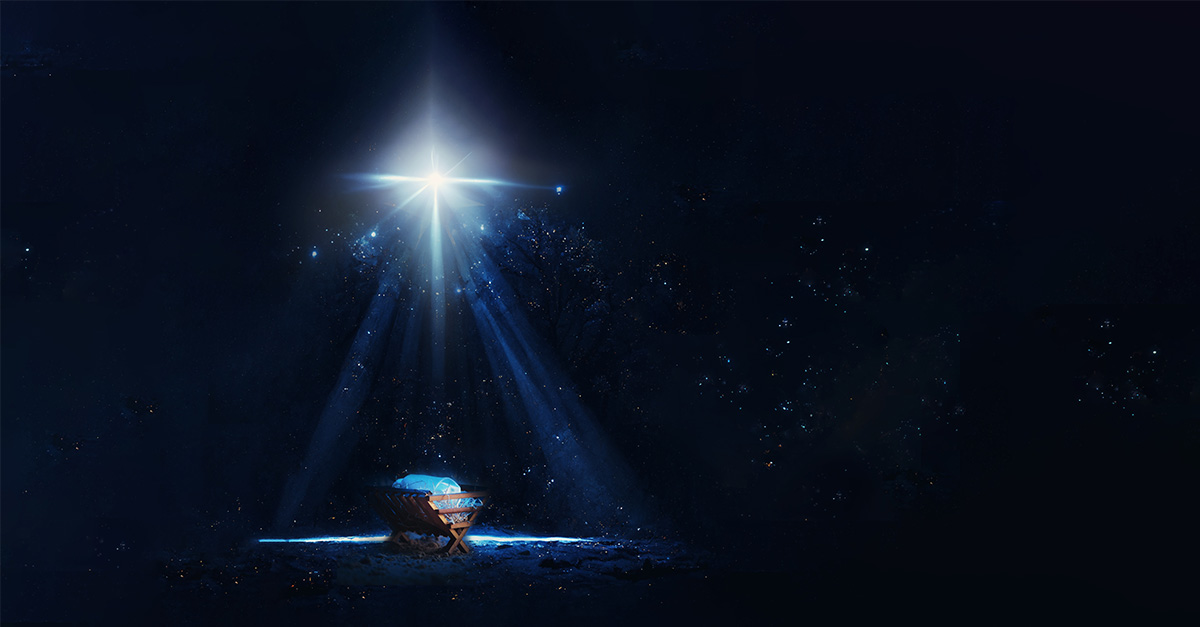


Get a free copy of Parental Rights & Education when you subscribe to our newsletter!

The cultural clash intensifies precisely because conservative Christians believe that the Christmas story is not confined to a quaint tableau in December but permeates every facet of life. Either Christ is Lord of all, or He is not Lord at all.
The culture war, as we know it, is not merely a political clash of divergent social opinions on abortion, homosexuality, biology, and the nature of marriage. It is a battle over deeper, spiritual truths. It is a struggle between different understandings of reality, creation, and God. It’s the titanic clash between good and evil, playing out in Christmas tree lightings, holiday specials, and gift-giving.
During this season of peace and Yuletide festivities, the conservative Christian, whether he realizes it or not, finds himself unwittingly enmeshed in a cosmic struggle. It is not merely about the nativity scene or the resounding hymns in the church pews; it is about the clash of values, the defense of truth, beauty, and goodness against the encroaching shadows of relativism and secularism.
In the heart of the Christmas narrative lies the crux of this culture war — a paradox so profound that it can only be comprehended by those willing to embrace the mystery. The baby in the manger, surrounded by the humblest of creatures, is in fact the Lord of All, the One True King, and the rallying point for an army of believers. It is here, in the quiet simplicity of Bethlehem, that the ultimate culture warrior enters the stage — the Christ-child, whose birth heralds a cosmic shift.
As Christians, we know that the Christmas story is not a mere historical anecdote but a foundational historical occurrence that shapes our worldview and fuels our engagement in the culture war. God sent His champion to earth to defeat the powers of darkness. The war that has been raging in the heavens since Satan rebelled is manifest on earth. In the manger, we find the perfect embodiment of the values we defend at the ballot box and in the public square — God the Son Incarnate. The Star of Bethlehem wasn’t just a beacon for the Wise Men in their day; it still shines for us now, as the unmissable signal of attack against the encroaching forces that seek to redefine morality, distort beauty, and discard absolute truth.
Paradoxically, the cultural clash intensifies precisely because conservative Christians believe that the Christmas story is not confined to a quaint tableau in December but permeates every facet of life. Either Christ is Lord of all, or He is not Lord. His humble beginning as a baby betrays the true power that was hidden in the manager that one silent night over 2,000 years ago. Yet, in this seemingly inconspicuous manger, there is a paradoxical revelation of divine strategy. The ultimate culture warrior does not emerge, at first, with a sword in hand or a crown of conquest. Instead, He enters the battle through vulnerability and humility.
The culture war is, in essence, a clash of stories — a battle between competing narratives about the nature of humanity, the purpose of existence, and the source of morality. It’s man as “god” or the God-man Jesus Christ. There are only two sides. And we all must choose.
The Christmas story provides the ultimate framework for understanding the created order and all of its entailments for the fight to end abortion, protect marriage, and defeat the lies of transgenderism. It is a declaration that humanity is not a product of blind chance or mere biological processes but the intentional craftsmanship of a Creator. In a world that increasingly seeks to erase distinctions and redefine the very essence of humanity, Christians find in the Christmas story a reaffirmation of the dignity inherent in being created in the image of God.
The paradox deepens as the narrative unfolds. The one who would be hailed as the King of Kings and Lord of Lords experiences the ignominy of the cross. The only perfect culture warrior, born in obscurity, now faces the brutality of crucifixion. It is a paradoxical twist that confounds the wisdom of the world — a king who conquers not through power and might but through sacrificial love.
And yet, it is precisely in this paradox that the conservative Christian finds the assurance of victory. We fight on in the war to bring all of creation — nations, politics, art, education, the sciences, and even architecture — into humble submission to King Jesus because He is ruling and reigning now. The baby in the manger becomes the crucified Christ, but He does not remain in the tomb. The resurrection is the triumphant crescendo and fatal strike to Satan and his followers that reverberates through the corridors of time. The ultimate culture warrior, having faced the depths of human suffering and the agony of death, emerges victorious over sin and death.
As the Christmas season unfolds, Christians participate not just in celebration but in steadfast confidence. It is a story that transcends the temporal struggles and ushers believers into a hope that extends beyond the tinsel and carols — a hope anchored in the ultimate victory of the culture warrior who is also the risen King.
Christmas unavoidably stands at the epicenter of this war. The birth of Christ was an act of godly, cosmic violence against the forces of evil in the spiritual and physical world. It was, in short, an act of war. More than that, it was a winning blow. It is a beacon of hope, a reminder of the divine intervention in human history. It reminds us that God has not abandoned His creation. He has come to redeem it. The birth of Jesus Christ is a promise of victory.
Christmas is the Culture War. And in this war, we are not just soldiers. We are victors. Christmas guarantees it.
The Church must be involved in public discourse and influence. That’s why we write — so our readers can be equipped to understand and pursue righteous change in the world. For more timely, informative, and faith-based content, subscribe to the Standing for Freedom Center newsletter.

Notifications